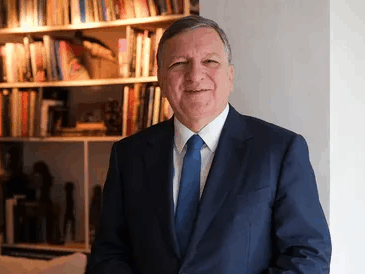A decade after the financial crisis that shook the foundations of the world economy, the world’s largest economies are again trying to recover through never-before-seen stimulus. The pandemic has brought a different economic crisis, and still no end is in sight, but some problems remain the same. Our guest this week is Miguel Faria e Castro, a Portuguese economist at the St. Louis Federal Reserve Studies Department, who helps us analyze all of this.
He left for New York in 2011, shortly after completing his master’s degree in economics at the Universidade NOVA de Lisboa, to do his PhD at New York University. Since then, it was in the world’s largest economy that he established his life. He was a research assistant at the National Bureau of Economic Research, and a teaching assistant at the NYU Stern School of Business and the New York University, until joining the St. Louis Federal Reserve, in Missouri, in 2017.
Despite his youth, he already has a considerable resume and experience in this area. He works with economists from all over the world, from China to Argentina, and he is in a privileged position to help us understand a bit more the circumstances we are living, in economic terms.
Miguel Faria e Castro explains that the new administration in the White House, led by Joe Biden, is not exactly surprising us in the reforms they are putting forward – which implies greater regulation –, because the major liberal reforms of the 1980s have been dismantled more or less consistently, especially after the 2008 financial crisis.
“The financial system was extremely deregulated in the 1990s here in the US, I think in 1999 is the great year when a law, this is probably a bit nerdy, but a very important law that still came from the times of the Great Depression that was the “Glass Steagall Act”, was basically overturned in Bill Clinton’s time. This was a law that required the separation of investment banking from retail banking. Many economists think that the annulment of this law was one of the causes close to the financial crisis we had in 2008.” – Miguel Faria e Castro
These past decisions, which many point to as one of the major factors that led to the financial crisis, are now enabling tighter regulation to be developed with greater support from both the American society and between the two largest political parties in the US.
As for the United States’ response to the economic consequences of the pandemic, Miguel Faria e Castro acknowledges that it was much larger than what happened in Europe and was also faster and more direct. But here there are several issues at stake. First, the US has decided to directly support – with direct transfers – all Americans, and this is partly the result of its social support network, such as unemployment benefits and other benefits, being considerably weaker.
On the other hand, there is also a lack of responsiveness on the side of the European Union, which must have the agreement of the leaders of the 27 Member States, each with their own particular interests, and also that the support decided was for the post-pandemic economic recovery phase, and not to help survive the pandemic, which is not yet finished.
“I think there is a great inability for European institutions to respond quickly. It is not clear whether it is a feature or a bug, but since everything that is done at the European level requires broad consensus on the part of its Member States it is normal that European institutions do not have a quick response capacity. What was actually seen with the European response to the crisis was that there was no immediate response. Basically, as the crisis unfolded in European countries they left the immediate response to the crisis to the Member States, and a package started to be designed to support the recovery.” – Miguel Faria e Castro
Don’t miss this episode, already available on the platforms where you normally listen to your podcasts. You can also find this episode in the links below.
Related Posts
January 30, 2026
FLAD and IPN Promote Collaboration between Johns Hopkins University Students and Incubated Startups
The initiative strengthened the link…
January 20, 2026
FLAD launches new summer program in the Azores for young Portuguese-Americans, in partnership with UAc and the Government of the Azores
The initiative takes place between July…
January 15, 2026



